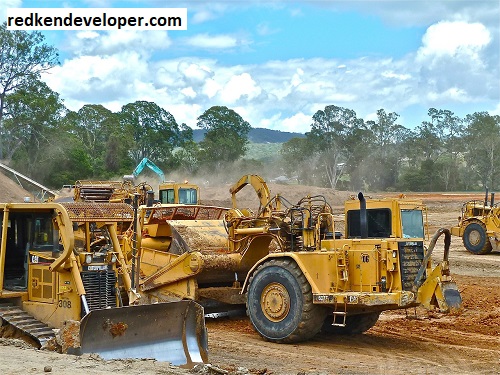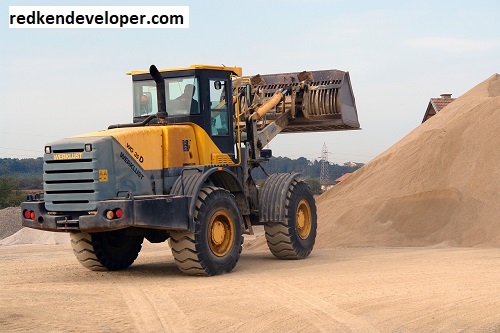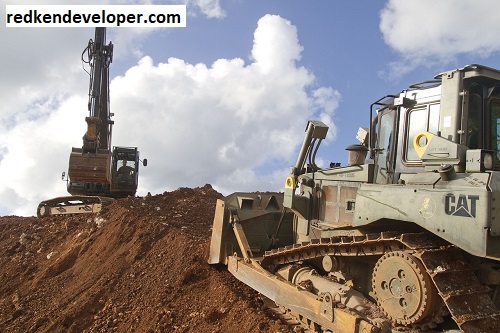Project Manager in Engineering Land Development Infrastructure:
Development:
Development No civil engineering or land development project can be completed without a Project Manager. A Project Manager would assume a very responsible role for one. Time delivery within budget and to required specifications in infrastructure projects. In land development, the process is established at the planning and permitting stage. Which goes as far as the construction of roads, utilities, as well as other needful infrastructure. This means that in this case, a project manager regulates the processes, coordinates teams, manages resources, and solves problems that may arise.

This paper provides deep insight into what a project manager does in the development of engineering land infrastructure, focusing on key responsibilities that need to be enforced with skills and challenges related to them. The details of what happens in one life cycle of a land development project are also discussed along with common questions about the career path to follow.
Understanding Land Development Infrastructure:
Development:
Land development is the process of preparing or bringing the raw land to a condition ready for constructing buildings or other improvements by laying down some infrastructure, as examples are given below.
Infrastructure: Roads and Transportation Networks roads, highways, bridges, etc. Transportation infrastructure Utilities such as water, sewage, electricity, natural gas and telecommunication systems, and drainage systems.
It involves zoning and landscaping, which is the development of land based on zoning and how that land will be ready for any type of future use; this can be in the form of residential, commercial, or even industrial development.
In general, infrastructure projects may become very complex and very challenging in terms of coordination and planning for those stakeholders engineers, architects, contractors, and the like, government agencies, and the community. In this complexity, the burden of the Project Manager is to ensure that everything that goes on to make up the project is aligned and put into action proficiently.
Functions of a Project Manager in Engineering Land:
Development:
2.1 Project Planning and Coordination:
The land development infrastructure project has a beginning with the right planning. The Project Manager defines the scope, timelines, and budget of the project. These are:
- Scope Definition: The general objectives and deliverables of the project, such as the type of infrastructural improvements that would be necessary, such as roads and water systems.
- Timeline Management: This will write in rich detail a schedule that will indicate key milestones as well as critical deadlines, right from the planning phase to the final construction and handover.
- Budgeting: Manage the cost of projects and keep the costs under control while within the budget constraints. That means an indication of cost overrun and where money can be saved in it.
In addition, the Project Manager should manage coordinating services from other teams that will be in the project; there are engineers, architects, city planners, and legal practitioners. They should ensure that the vision of the project across different departments and even to other stakeholders is communicated.
2.2. Compliance with statutory and permit requirements:
Land development projects have to strictly obey all the rules applicable to them by the local, state, and federal authorities. A few of these are along the lines of ensuring that a project is compliant with zoning laws, building codes, and environmental regulations, among many others, which are ensured by a Project Manager. The responsibility for this includes the following:
Obtaining Permits: Permits for construction, land clearing, and utility installation have to be obtained before the work begins.
- Compliance with Environmental Laws: Not to violate the EIAs and also the statutory obligations relating to the treatment of water, gaseous states of air, and wildlife.
- Keeping in line with the Authorities: All types of legal and regulatory upgrades that the government and the local municipalities have in place while handling the project.
These will be managed if one is going to steer clear of delays and litigations in the long run.
2.3. Risk Management:
Development:
Construction and infrastructure projects are inherently risky by their very nature: financial, technical, and environmental. Risk identification, evaluation, and control are part of the role of the Project Manager during the life cycle of the project. These include:
- Identification of Risks: Early identification of potential risks like the onset of unexpected weather conditions or changes in regulations along with logistical issues.
- Contingency Development: Developing plans B and C to mitigate risks of over-running both on time and cost. This would prepare the contractor for delays or problems in site conditions that occurred during construction.
- Problem Solving: An urgent and proactive responsibility that solves problems resulting from the delay in the construction process, which is the breakdown of the supply chain system in this case. This risk manager should have flexible attention to detail and crucial decision-making skills amidst fast-paced situations.
2.4 Stakeholder Communication:
Land development is a quite highly complex sphere of activity, where various groups of individuals with different interests are taken
- into account: the developer, contractor, government, and community groups. At this stage, the Project Manager should fulfill duties on the contacting point for all these parties and must :
- Communicate: Keep the stakeholders informed of developments, changes, or challenges in the project. This includes periodic arrangements of meetings and presentations as well as progress reports.
- Manage Expectations: Managing realistic expectations stakeholders have about the timeline, cost, and likely impact on the community.
- Conflict Resolution: In the event of disputes among the stakeholders, an ideal mediator needs to be involved so that the grievances are solved within the shortest period fairly.
Effective management of stakeholders is considered to maintain mutual good relations and help the project progress smoothly.
2.5. Team Leadership and Coordination:
Assemble and lead project teams; including recruiting and managing contractors, subcontractors, and suppliers-this is, evaluating tenders and negotiating contracts with competent, reliable contractors while ensuring that the contractors meet all agreed-upon commitments.
Coordinates field activities from excavation up to final grading such that construction works are undertaken according to schedule and as specified in drawings.
Team Motivation: The leading and motivation to lead a project team, solve conflicts, and provide a cooperative environment and results-oriented environment for productive working.
The Project Manager ensures that progress is as per the plan and that every team member is efficiently performing the assigned tasks.
The Project Lifecycle of Land Development Infrastructure:
Development:
Land development infrastructural projects normally have a step-by-step project cycle. The project manager must monitor and control activities for each of the steps to advance one step in reaching the delivery of the project successfully:
3.1. Pre-Development (Planning Stage):
- Site Analysis: this determines the physical characteristics of the land-to-be developed (type of soil, topography, drainage) and its legal characteristics (zoning laws, property boundaries).
- Feasibility Studies: studies markets, financials, and risk appraisal to confirm the feasibility of a proposed project.
- Design and Engineering: Consult with the engineers, architects, and planners regarding infrastructure design
3.2 Development (Construction Stage):
Development:
Pre-Construction: It is a stage where preparation of the site takes place for the subsequent construction processes. The steps include clearance of foliage, grading of the site, and excavation for utilities and foundations.
- Construction of Infrastructure: Road, Water and Sewer, and construction of Stormwater Management.
- Monitoring and Correction: The Project Manager ensures that the construction work shall be strictly implemented according to the design and schedule, and, therefore corrects it if necessary.
3.3. After Development (Completion and Handover):
Inspection and Testing: All infrastructure systems are guaranteed to be well-operating, safe, and in conformity with regulatory standards.
- Handover: Official handover of completed projects to the client or the concerned municipality.
- Close-out: He shall present all paperwork; resolve all problems or concerns and the financial transactions shall be finalized.
Key Skills and Qualifications of the Project Manager of Land:
Development:
To successfully perform engineering land development infrastructure projects, he must be technically and administratively capable with technical knowledge, management ability, and interpersonal skills:

- Technical Knowledge: In-depth knowledge of civil engineering principles that include construction techniques and systems.
- Project Management Skills: Strong experience with the aspects of planning, scheduling, budgeting, and resource utilization. Computer skills in project management software like MS Project, and Primavera. Leadership and Communication: Inspiriting teams, and resolving conflicts, with effective communication by the leadership skills across all stakeholders.
- Problem Solving: ability to identify problems at the very point of occurrence and take corrective and prompt actions as soon as they arise in the life cycle of a project.
- Risk Management: ability to foresee problems and find contingency plans.
Education and Experience:
Development:
Education:
Bachelor’s degree in civil engineering, construction management, or any related field. Some may require a master’s in project management or an MBA.
Project Management Professional, LEED accreditations, and Certified Construction Manager are some other certifications.
He should have 5-10 years of experience in the construction or land development industry, along with experience with large infrastructure projects.
FAQs:
Development:
Q1: What is a Project Manager’s role in land development infrastructure?
A1: In land development infrastructure, a Project Manager needs to be in control of all aspects of a project, from its plan and design stage through construction to completion. He/She should thus: Direct resources; Coordinate teams within the rules and regulations, manage risk, and properly inform the stakeholders.

Q2: What are the most important skills for a Project Manager in this field?
A2: Basic principles of civil engineering, leadership and communication skills, managing the project, problem-solving ability, risk management, keeping the cost/budget, and time budgeting.
Q3: How to keep a project on track in time? How to keep the project within budget and schedule?
A3: A Project Manager evolves a detailed project plan and checks the progress against timelines and budgets. However, even with this, there is still a mitigation of any potential problem and delay. The project manager colludes with contractors and suppliers to bargain costs and timelines too.